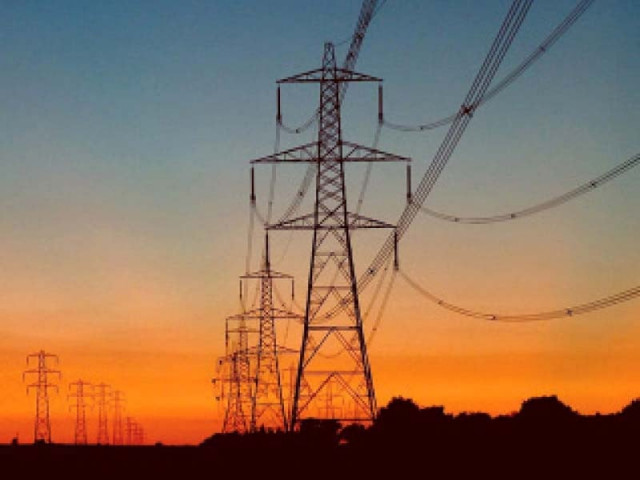Further power tariff hike on cards
NEPRA reserves decision on burdening consumers with Rs96.5 billion

Power consumers are set to face another hike in electricity rates on account of quarterly and monthly fuel cost adjustments.
The government has already hiked electricity rates by Rs1.95 per unit.
Now, another shock is on the cards for the consumers as the National Electric Power Regulatory Authority (Nepra) on Tuesday conducted a public hearing in this regard. However, the regulator reserved its judgement on burdening the consumers with around Rs96.50 billion on account of monthly and quarterly adjustments.
Chaired by Nepra Chairman Tauseef H Farooqi, the regulator conducted separate hearings on the demand from ex-Water and Power Development Authority (ex-Wapda) distribution companies to transfer the burden of Rs91.367 billion to the power consumers on account of adjustments for the first two quarters (July-September 2020 and October-December 2020) of the current fiscal year and Rs5 billion under the fuel cost adjustment for February 2021.
The demand for two quarterly adjustments, if approved, will have an impact of Rs0.91 per unit on the consumers.
In their petition submitted to Nepra, the ex-Wapda distribution companies demanded Rs44.709 billion for the first quarter of fiscal year 2020-21 and Rs46.658 billion for the second quarter under quarterly adjustments on account of variation in the power purchase price (PPP).
The ex-Wapda distribution companies also demanded Rs9.287 billion on account of monthly fuel cost adjustment for February 2021. Consumers may face a tariff hike of up to Rs0.65 per unit under this head.
Under quarterly adjustments for the first two quarters of FY21, Lahore Electric Supply Company (Lesco) demanded the highest adjustment of Rs21.113 billion, followed by Peshawar Electric Supply Company (Pesco) Rs15.334 billion, Multan Electric Power Company (Mepco) Rs13.952 billion, Faisalabad Electric Supply Company (Fesco) Rs8.397 billion, Gujranwala Electric Power Company (Gepco) Rs7.741 billion, Islamabad Electric Supply Company (Iesco) Rs7.409 billion, Sukkur Electric Power Company (Sepco) Rs6.834 billion, Quetta Electric Supply Company (Qesco) Rs5.981 billion and Hyderabad Electric Supply Company (Hesco) Rs5.921 billion.
Tribal Areas Electric Supply Company (Tesco) has, however, shown savings of Rs1.316 billion in its account.
For the first quarter, Lesco demanded the highest adjustment of Rs11.299 billion, followed by Pesco Rs7.824 billion, Mepco Rs7.092 billion, Gepco Rs4.185 billion, Hesco Rs3.818 billion, Iesco Rs3.414 billion, Sepco Rs3.046 billion, Qesco Rs2.358 billion and Fesco Rs2.351 billion. Tesco showed savings of Rs680 million in its account.
For the first quarter on account of capacity purchase price, the distribution companies demanded Rs33.392 billion, for variable operations and maintenance Rs2.527 billion, UoSC Rs2.801 billion and MoF Rs5.989 billion as an impact of transmission and distribution losses on the monthly fuel price adjustments.
Similarly, Nepra conducted a hearing on the Central Power Purchasing Agency (CPPA) petition for an increase of Rs0.6573 per unit in power tariff under the fuel cost adjustment for February 2021 for ex-Wapda distribution companies.
In its petition, the CPPA said it had charged consumers a reference fuel price of Rs4.1414 per unit in February while the actual fuel cost turned out to be higher. Hence, it should be allowed to charge Rs0.6573 per unit additional cost from the consumers. The petition for tariff increase was filed by the CPPA on behalf of ex-Wapda distribution companies.
According to data provided to Nepra by the CPPA, energy generation in February 2021 was recorded at 7,281.01 gigawatt-hours (GWh) at a cost of Rs34.311 billion (Rs4.7123 per unit). Total electricity sold to the distribution companies was 6,996.37GWh for Rs33.573 billion. Total transmission losses during February were 3.91%.
As per data submitted by the CPPA, the share of hydropower generation in February was 27.93% or 2,033GWh, which was almost double than January 2021. Power generation from coal-fired power plants decreased from 2,559GWh (31.68% of total generation) in January to 1,902.98GWh in February.
The cost of generation, however, increased from Rs6.47 per unit in January to Rs7.0621 in February.
The use of RFO power generation decreased from 974GWh (12% of total generation) to only 77.31GWh or 1.06%. The tariff for RFO-based electricity also decreased from Rs12.3460 per unit in January to Rs11.8971 per unit. No high-speed diesel based electricity was generated in February as compared to 46GWh during January.
Electricity generation in February from gas-based power plants was 906.37GWh or 12.45%, which was less than 1,333.80GWh (16.751% of total generation) during the previous month. However the cost of gas-based electricity increased from Rs7.6191 per unit in January to Rs7.7156 per unit in February.
The generation of RLNG based electricity increased from 916.42 GWh (11.34% of total generation) in January 2021 to 1,271.04 GWh or 17.46% in February. The cost of electricity, however, increased from Rs8.3184 per unit in January to 8.8252 per unit in February. Nuclear-based power generation was 791.91GWh or 10.88% at Rs1.0071 per unit and electricity imported from Iran was 29.65GWh at Rs9.6960 per unit.
A hearing was also conducted by Nepra on the petition filed by CPPA-G for determination of its market operation fee for FY 2020-21. Nepra has concluded the hearing and reserved the judgement.
Published in The Express Tribune, March 31st, 2021.
Like Business on Facebook, follow @TribuneBiz on Twitter to stay informed and join in the conversation.



















COMMENTS
Comments are moderated and generally will be posted if they are on-topic and not abusive.
For more information, please see our Comments FAQ